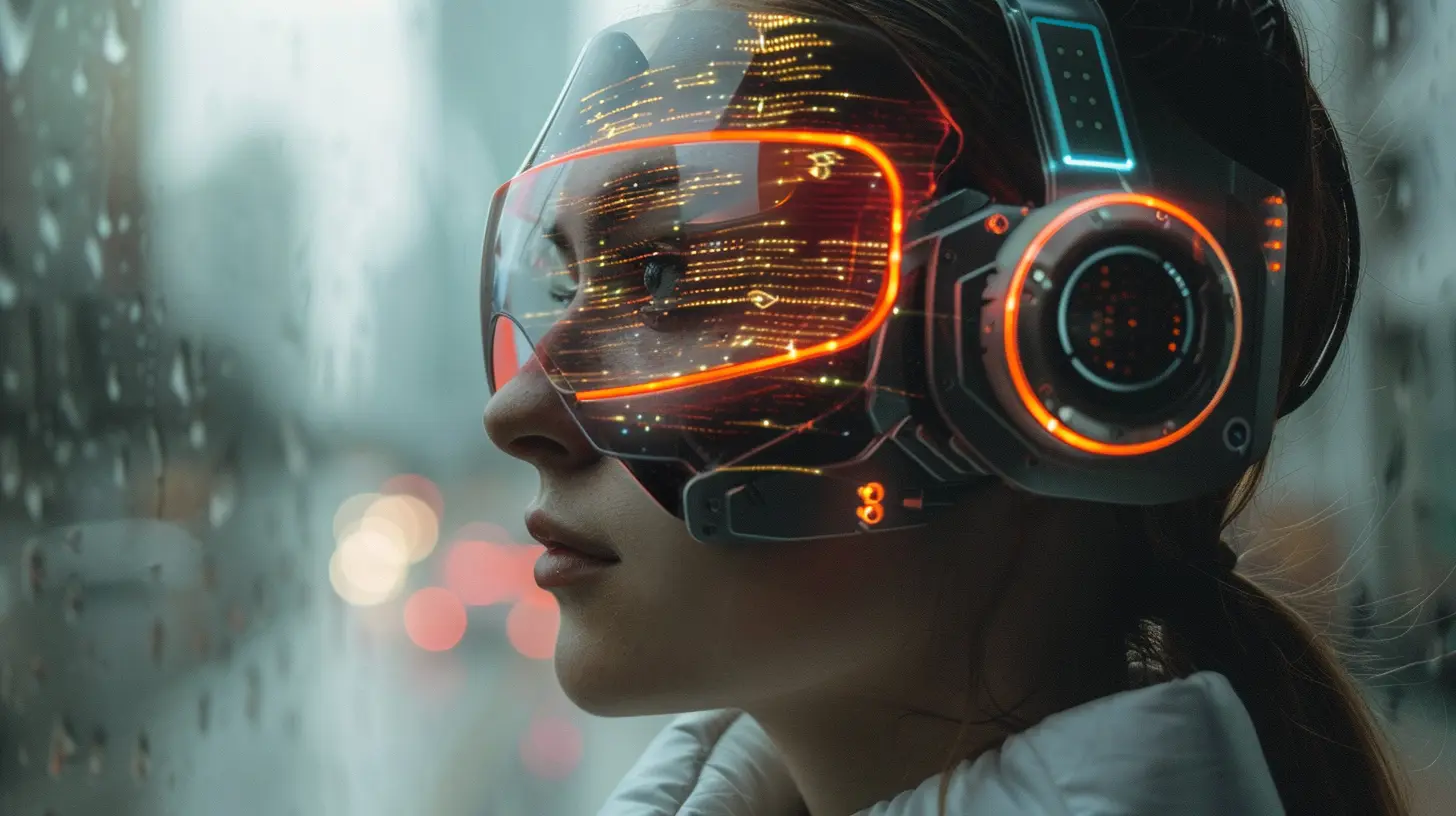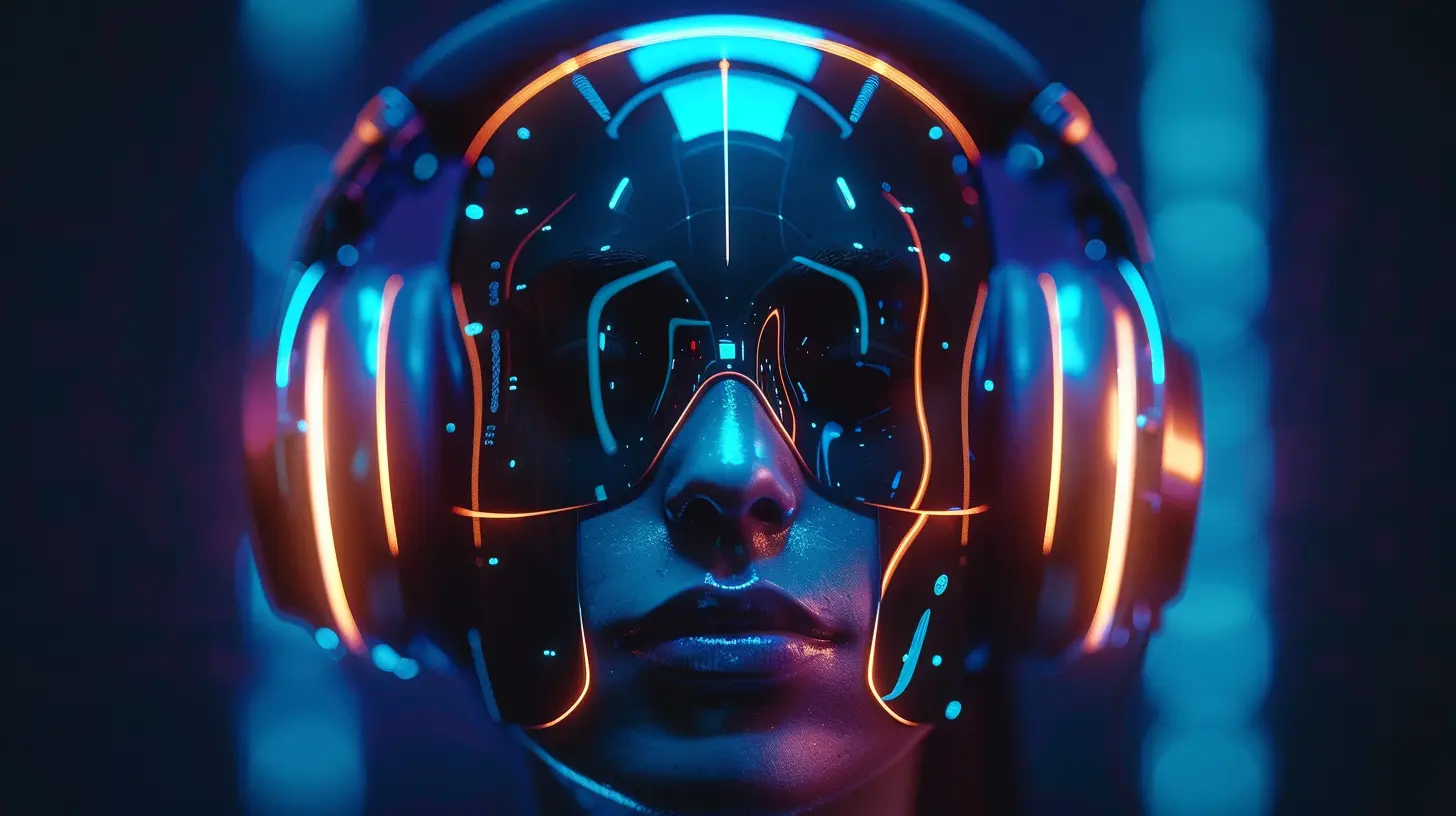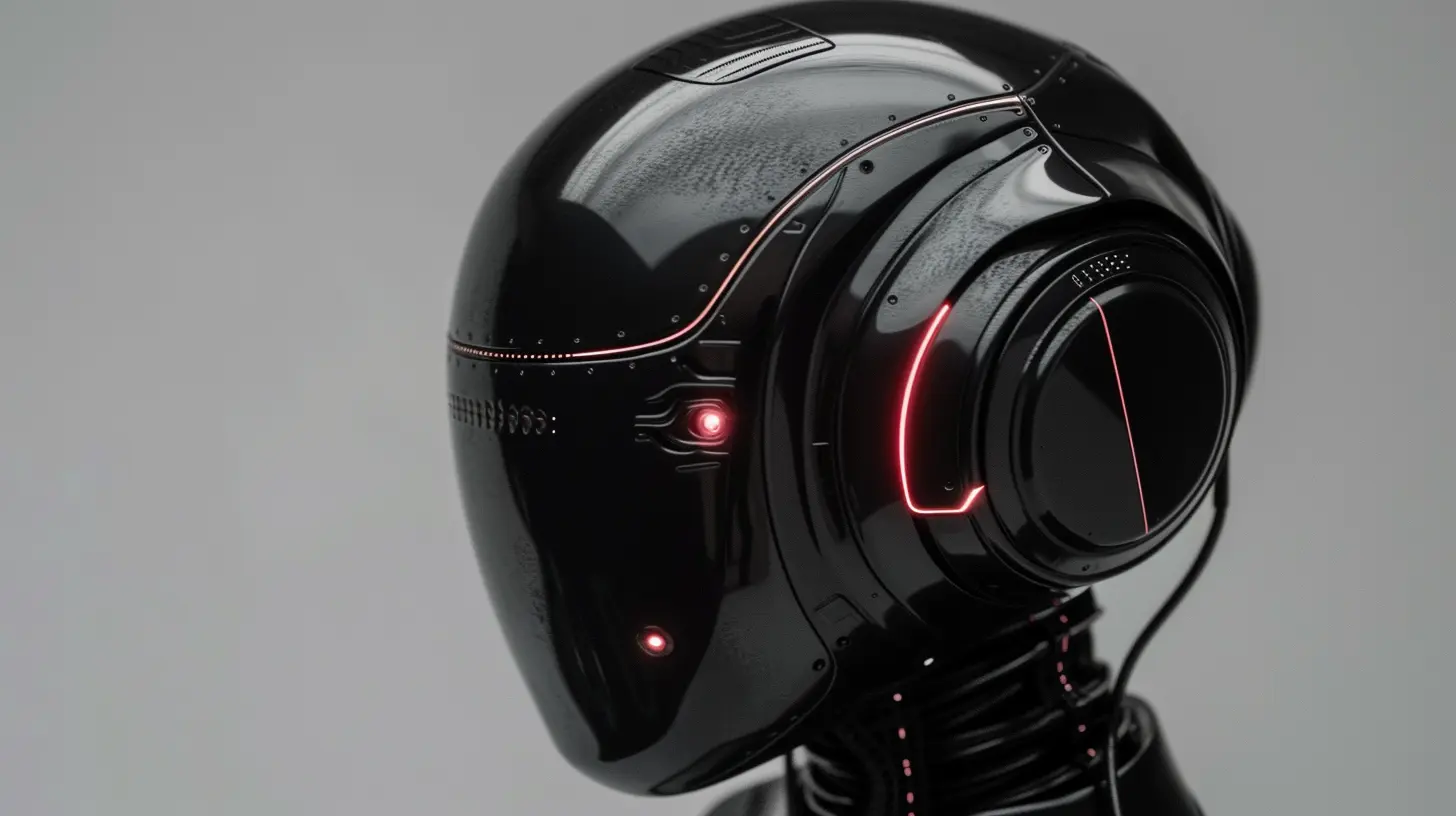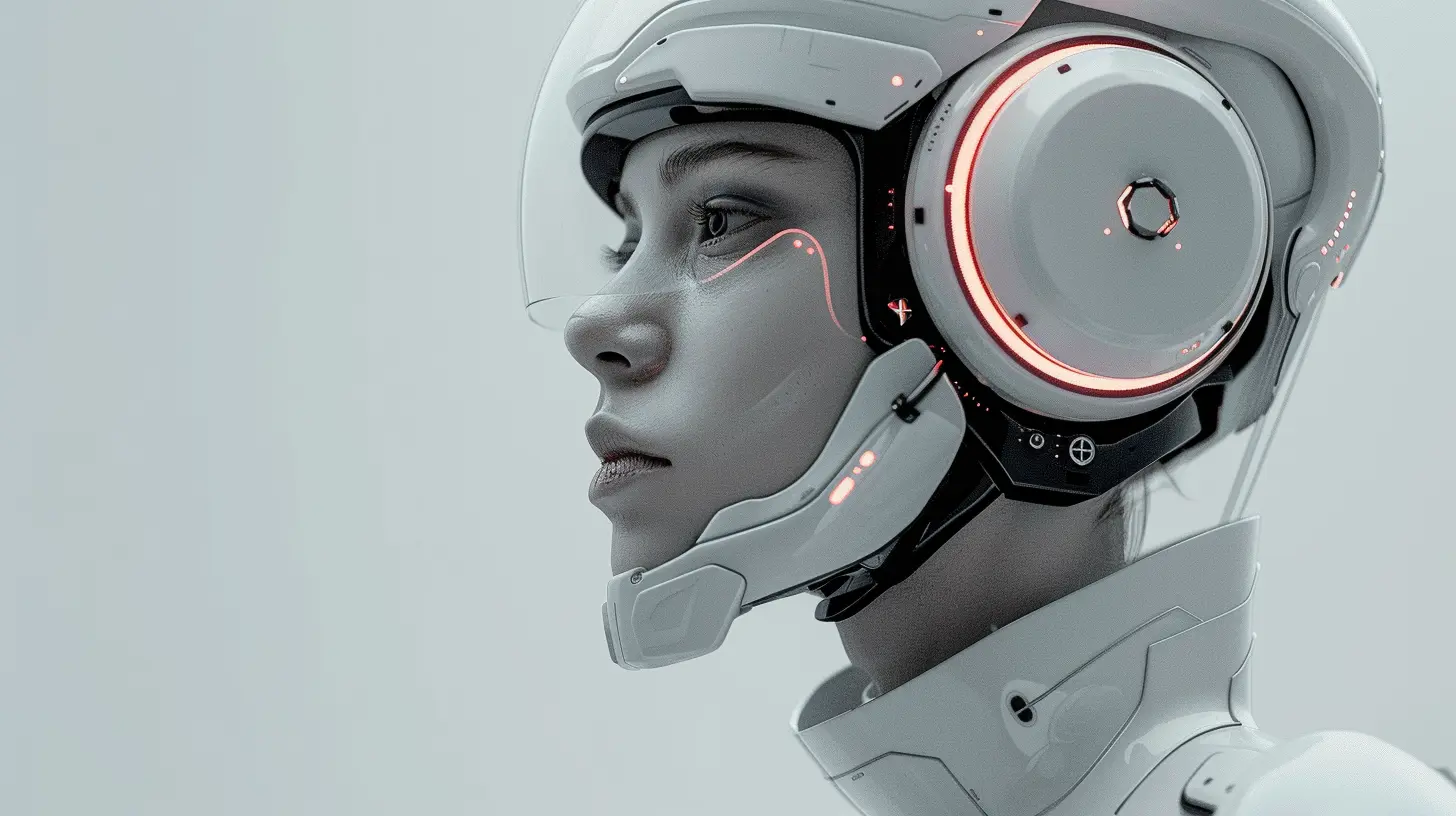The Role of AI in the Next Generation of Smart Headphones
12 November 2025
If you thought your headphones were just for listening to music, think again. Smart headphones have been around for a while, but thanks to advancements in technology, they're about to get a lot smarter. Now, we’re not just talking about noise-canceling features or voice commands. We’re talking about artificial intelligence (AI) stepping up the game. Imagine your headphones adapting to your environment, learning your preferences, or even predicting your needs. Sounds futuristic? Well, the future is closer than you think.
In this article, we’re going to dive deep into the role of AI in the next generation of smart headphones. We'll explore how AI is changing the way we listen to music, interact with our devices, and even manage our health. So, grab your favorite pair of headphones (smart or not) and let’s get started!

What Are Smart Headphones?
Before we jump into the AI part, let’s quickly define what smart headphones are. Essentially, smart headphones are equipped with more advanced features than your standard pair of wireless earbuds. These might include voice assistants (like Siri or Google Assistant), noise cancellation, gesture controls, or even heart rate monitoring. But as AI becomes more integrated into our gadgets, smart headphones are evolving from just being "smart" to becoming downright intuitive.
How AI is Transforming Smart Headphones
AI is already transforming countless industries, from healthcare to automotive, so it's no surprise that it’s making its way into consumer electronics, including headphones. AI in smart headphones can take user experience to a whole new level. Let’s break down some of the key ways AI is reshaping the future of these devices.1. Adaptive Sound and Noise Cancellation
One of the biggest advancements in smart headphones is AI-powered adaptive sound and noise cancellation. In traditional noise-canceling headphones, the device blocks out all external noise, which is great if you’re on a plane or in a noisy office. But what if you're walking down the street and need to be aware of your surroundings?AI takes noise cancellation to the next level. By using machine learning, smart headphones can analyze your environment in real-time and adjust the noise cancellation levels accordingly. For example, if you’re in a quiet library, the headphones might reduce the noise cancellation so you can hear someone speak if needed. But if you hop on a busy subway, the AI kicks in and cranks up the noise cancellation to block out the hustle and bustle. It’s like having a personal sound engineer that understands your needs.
2. Personalized Audio Experience
We all have different tastes when it comes to how we like our music or podcasts to sound. Some people love deep bass, while others prefer a more balanced sound. AI can learn your listening habits and create a personalized audio profile just for you.Imagine that you always turn up the bass when you listen to hip-hop or tone down the treble when listening to classical music. AI can take note of these preferences and automatically adjust the sound settings depending on the genre, artist, or even specific song. It’s like having a DJ in your ears who knows exactly what you want!
Over time, this personalized audio experience goes beyond just music. AI-powered headphones could learn when you prefer podcast over music, or even when you’d rather have silence. It’s all about creating a seamless experience where the headphones become an extension of your listening habits.
3. Voice Control and Natural Language Processing
Voice assistants like Siri, Alexa, and Google Assistant have become common in smart devices, but with AI, the level of voice interaction could get a lot more sophisticated. Natural Language Processing (NLP) is an AI technology that allows devices to understand the nuances of human speech.For example, instead of having to say, “Hey Siri, play my workout playlist,” you could simply say, “I’m going for a run,” and your smart headphones would understand that you want your workout playlist. This kind of intuitive interaction is already being explored, and AI is making it more seamless and natural.
AI could also improve how well your headphones understand you in noisy environments. Ever tried giving a voice command while in a crowded subway? It’s not easy, but with AI-powered speech recognition, smart headphones could isolate your voice even in a noisy room and accurately execute your commands without you having to shout.
4. Health Monitoring and Fitness Tracking
Believe it or not, some smart headphones already offer basic health monitoring features like tracking your heart rate. But with AI, these capabilities are about to get a whole lot smarter.AI can analyze the data from in-ear sensors in real-time to give you more accurate health insights. For instance, your headphones could learn your typical heart rate patterns during workouts and alert you if something seems off. They could even suggest taking a break if your heart rate spikes unexpectedly.
AI could also integrate with your fitness apps to give you a more holistic view of your health. Imagine your headphones syncing with your smartwatch or smartphone to track your steps, calories, and even sleep patterns. It’s like having a personal trainer and doctor in your ears.
5. Intelligent Battery Management
Battery life is always a concern when it comes to wireless headphones. No one likes the dreaded low-battery warning in the middle of a favorite song or podcast. AI can help manage battery life more efficiently by learning your usage patterns.For example, if AI knows you usually listen to music during your commute but not at work, it could enter an ultra-low power mode during your office hours to save battery. It can also predict when you'll likely need a charge, sending you reminders based on your habits. This is particularly useful if you're the type to forget to charge your devices regularly (guilty as charged!).
6. Seamless Integration with Other Smart Devices
We’re living in a world where everything from our thermostats to our refrigerators is becoming "smart." AI-powered headphones could play a central role in this interconnected ecosystem. Imagine your smart headphones syncing with your smart home devices. You could walk into your house, and based on your location, your headphones could automatically switch from playing music to notifying you of any important updates, like a package delivery or a reminder to feed the cat.Since AI learns your preferences, it could also suggest actions based on your daily routines. For instance, if you usually listen to a podcast while cooking, your headphones could suggest starting the latest episode the moment you step into the kitchen.
7. Contextual Awareness
Headphones of the future won’t just be smart; they’ll be aware. AI can enable contextual awareness, meaning your headphones can understand your surroundings and act accordingly. For instance, if you’re having a conversation with someone, the headphones could automatically pause your music. Or if you're walking in a busy area, the headphones might lower the volume and let in more ambient noise to keep you aware of your surroundings.This kind of contextual awareness would make smart headphones not only more convenient but also safer to use.

The Future of AI in Smart Headphones
As AI technology continues to evolve, the potential for smart headphones is limitless. Think about it—what if your headphones could anticipate your mood and play the perfect playlist to match it? Or what if they could translate a foreign language in real-time, allowing you to communicate seamlessly while traveling abroad?AI could also bring advances in accessibility. For individuals with hearing impairments, AI-powered smart headphones could help amplify certain sounds or frequencies, making it easier to hear conversations or enjoy music.
The possibilities are endless, and as AI becomes more integrated into these devices, smart headphones will become more than just a way to listen to music. They’ll become personal assistants, health monitors, and perhaps even life coaches in your ears.

Final Thoughts
The role of AI in the next generation of smart headphones is nothing short of revolutionary. From personalized sound experiences to intelligent battery management and health monitoring, AI is transforming how we interact with technology. As these advancements continue to develop, we can expect smart headphones to become an essential part of our daily lives—not just for entertainment but for productivity, health, and safety.So, what does the future hold for AI-powered headphones? It’s hard to say for sure, but one thing is certain: the headphones of tomorrow will be smarter, more intuitive, and more in tune with our lives than ever before.
all images in this post were generated using AI tools
Category:
HeadphonesAuthor:

John Peterson
Discussion
rate this article
1 comments
Nala McEachern
This article offers valuable insights into the integration of AI in smart headphones. It’s exciting to see how these advancements will enhance user experience, personalization, and overall audio quality. Great read!
November 14, 2025 at 1:31 PM

John Peterson
Thank you for your feedback! I'm glad you found the insights valuable. Exciting times ahead for smart headphones!


